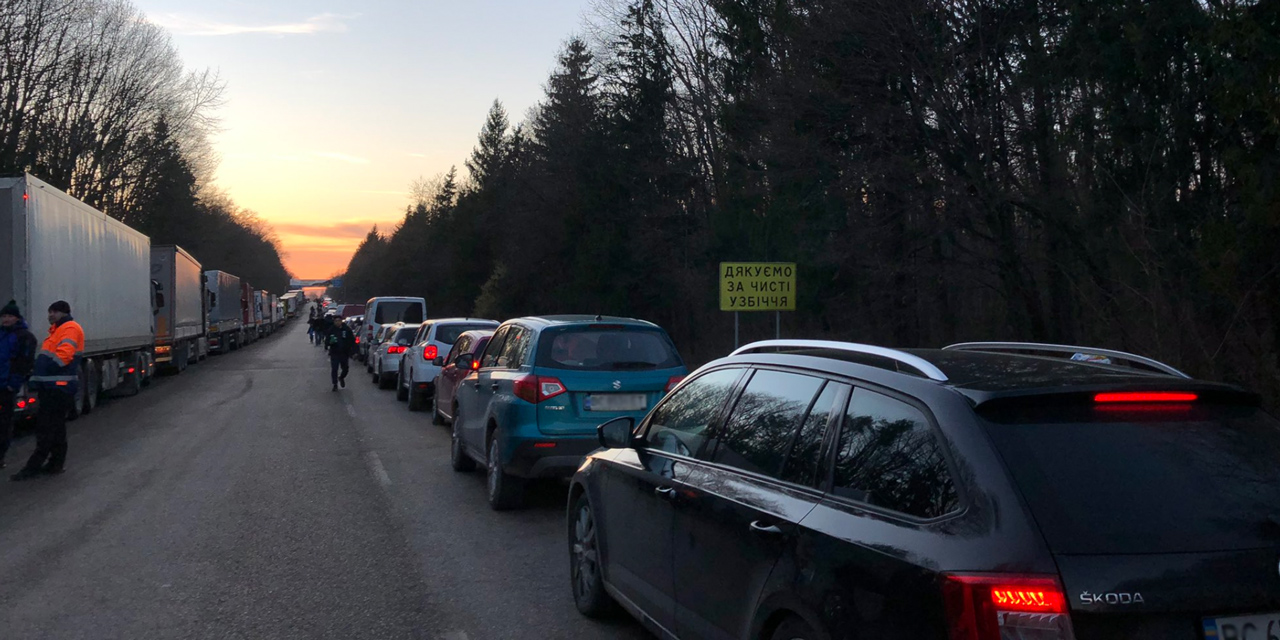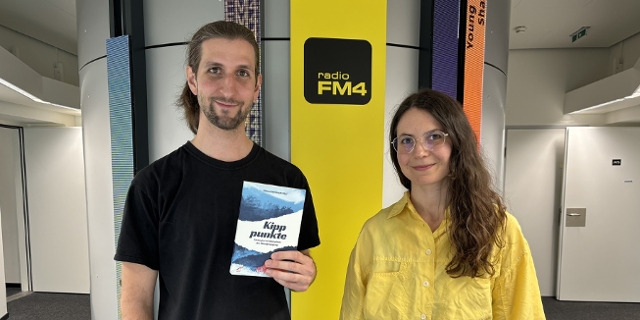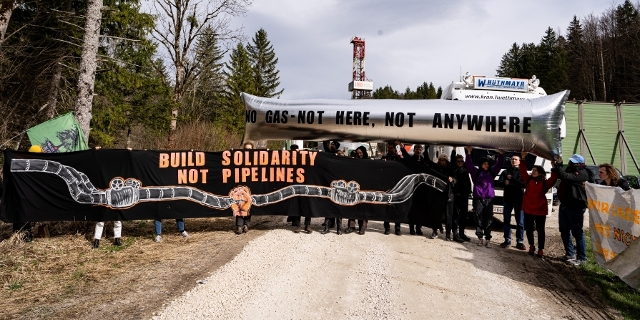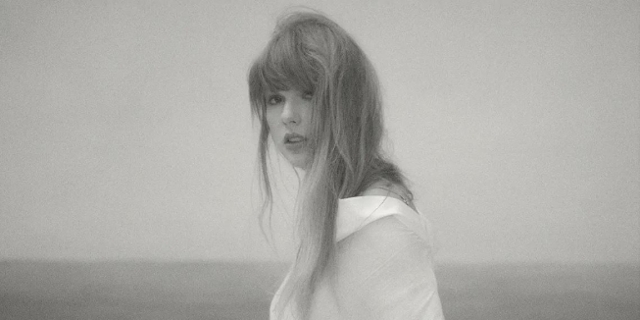Despair, Cold and Forced Conscription
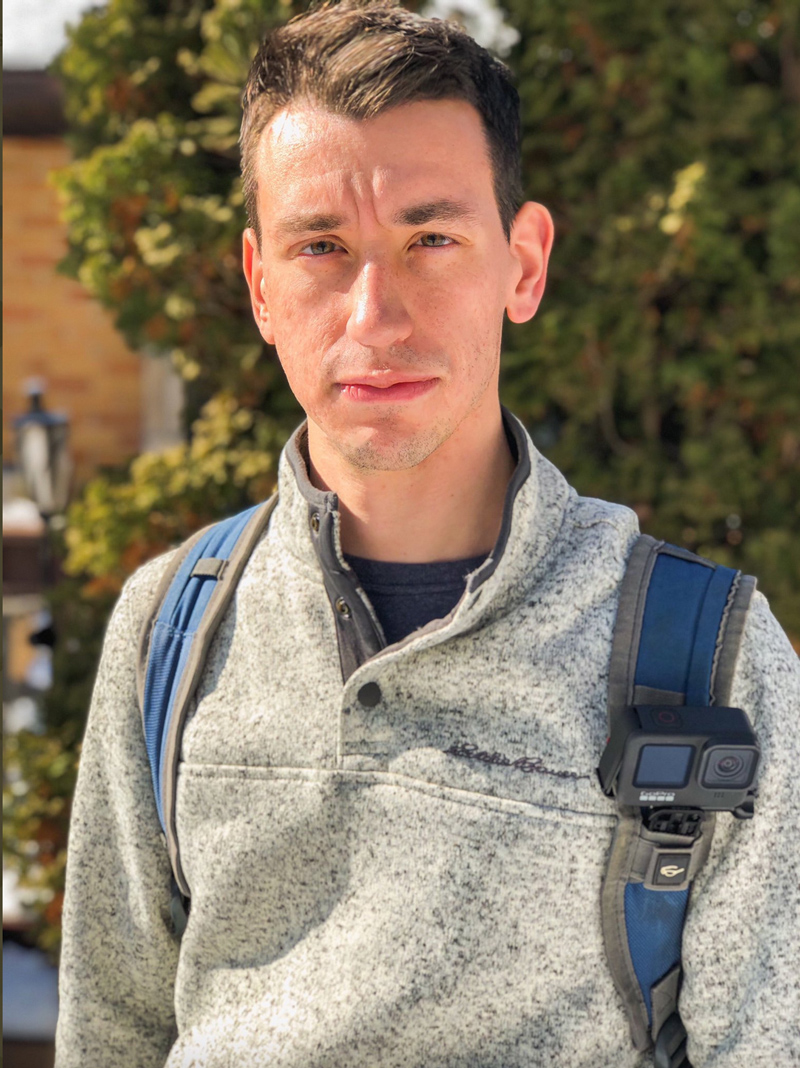
Manny Motta
Manny Marotta is a freelance journalist from the US who was covering the story in Ukraine as war broke out. He was in the western Ukrainian city of Lviv when the air raid sirens began and he decided it was time to leave.
Manny Marotta took a city bus as far as it would go. But then, when no more transport was available, he walked the final 70km to the Polish border.
He walked alongside thousands of Ukrainian refugees, including the very old and the very young. 15km from the border the traffic had come to a standstill and many people had just abandoned their vehicles and joined those on foot.
He told me of the harrowing things he saw on the way:
CC: What was it like on that 70km walk?
MM: It’s a difficult walk, even for a young man. To see people over the age of 80 and to see children under the age of five being forced almost to complete this walk because otherwise they would face a very unsafe situation at home. It’s a heartbreaking because these people have to be pushed far beyond their physical limits in winter time, exposed to the elements. There’s no place to get food. There’s no place to get water. There’s no place to use the toilet. There’s no rest area. There’s no place to sit. These people are forced to go on this long walk.
CC: You spoke to some of the people fleeing alongside you. What did they tell you?
MM: I asked them where they had come from. Most of them were from the capital Kiev and then other cities further east. These people had been travelling since the morning. They had driven as far as they could. They’d taken a bus as far as they could, and they could go no further once they had hit this traffic jam. So they had to walk and they were carrying everything they possibly could with them.
CC: This was clearly an ordeal for the very elderly and the very young. But for men of your age, there was another scary issue, right?
MM: Yeah, of course. Most of the men of fighting age that I saw were actually with their families in some capacity. There were very few single men. Most of the men were protecting the families, they were travelling with their families. But then there were men like me, mostly students.
Ukrainian President Volodymyr Zelenskyy passed an order conscripting all men between the ages of 18 and 60 for Ukrainian military duties. And these men were forced to leave the line by Ukrainian army patrols. There was a sort of conscription agency going around.
We made friends with a 24 year old on the walk. His name was Maxim. We walked with him for a while and talked. While I was interviewing him, he was pulled out of line by Ukrainian army soldiers and forced to go back as well, along with hundreds of other men.
CC: So many people worldwide, not just in Ukraine, are horrified at the aggression of Russia. But being horrified is a very different thing from being given a gun and, with no military experience, then being told to fight trained fighters from an overwhelmingly powerful enemy. Being conscripted in this moment sounds terrifying.
MM: Absolutely. Many of them didn’t believe that war was the best solution to problems. Obviously, many people are peace loving, and they just did not want to fight. They didn’t want to risk their lives or their family’s lives. As I said, most of these men that were travelling or protecting the families, and that was the priority. And it’s a very understandable and noble priority. But even fathers who were with little children were forced to leave those little children with the mother or sometimes with a sibling. And families were torn apart at the frontier. It was so heartbreaking to watch.
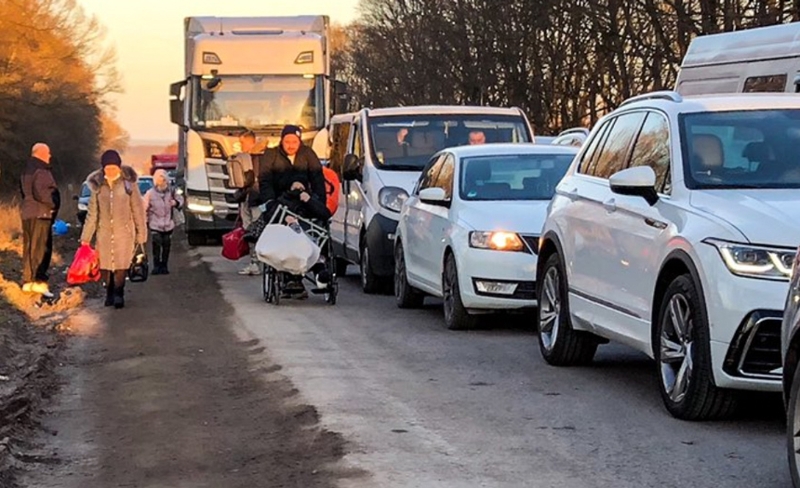
Manny Motta
CC: You finally made it to the border with Poland. What was it like when you got there?
MM: The border crossing was the worst part because as you got closer, people congested more and more, and the Ukrainian army was only letting 10 people out every 20 minutes and there were 20 people or so there at the time. And so every time that the gate opened and allowed it 10 more people, there was just a human crush at the gate where people were climbing over each other. They were pushing each other, they were shoving each other, they were pressing against each other. People were passing out. There was no water. There was no food. It was the middle of the night. It was wintertime.
So we were at the border for several hours just trying to get through that gate because they weren’t letting people out. And this wasn’t Poland not letting people in, it was Ukraine refusing to let people out. Poland was actually kind of a breeze. Less than 15 minutes and we were through. We were in Poland and we were welcomed by a reception committee with tea.
CC: Poland said it was going to take up to a million refugees from Ukraine. What’s your experience like now? You’re in Poland? What are you seeing?
MM: I’m in a hotel now that is full of Ukrainian refugees. In my room, there are five of them and they don’t know when they are going home. This was a hasty evacuation. They brought what they could with them, and they don’t know when they’re going back. And that is causing despair. Oftentimes, they don’t know where their family is. And they know that if they go back, then they face not only danger from the Russians, but conscription into the Ukrainian army and being sent to fight in a war.
Publiziert am 28.02.2022







